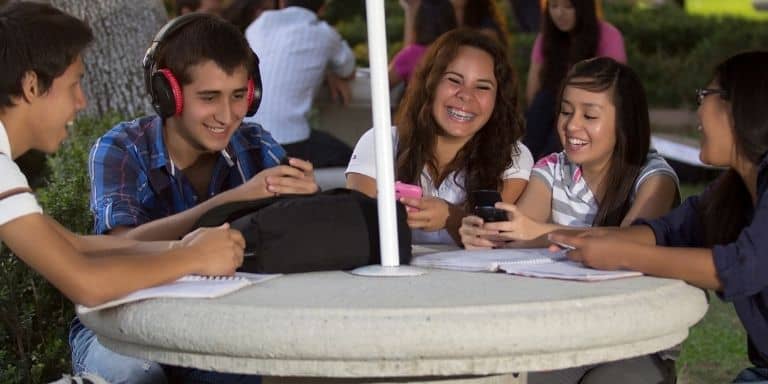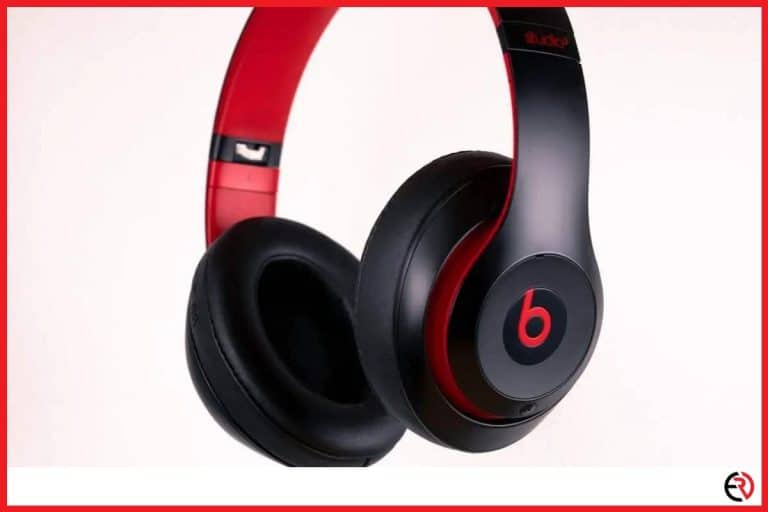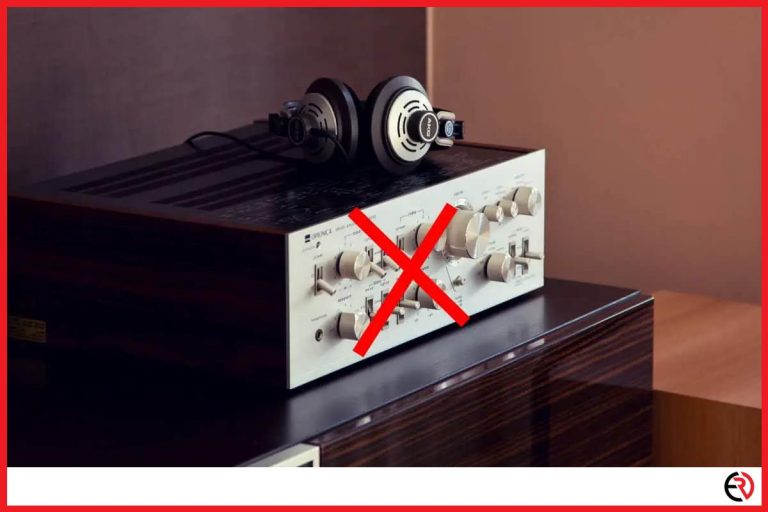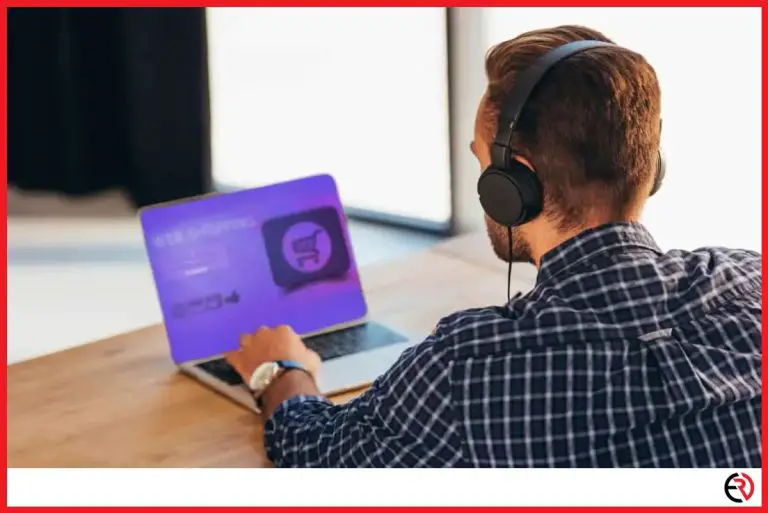Should Headphones be Allowed in School? (Pros & Cons)
This post may contain affiliate links which means that, if you choose to make a purchase, I may earn a small commission at no extra cost to you.
Using headphones in school has been a topic of many debates. Due to this, educators, parents, and students have different opinions on whether headphones should be allowed in school or not.
In this article, we’ll explain the reasons why headphones should be allowed and why they should be banned.
Headphones should be allowed in schools because they can lower stress levels, increase productivity, help students learn, decrease noise levels in schools, and make the school experience better. On the other hand, headphones should be banned because they can cause poor communication skills, distract students, put students in danger, cause conflicts, and help students cheat.
Why Headphones Should Be Allowed
Headphones can lower stress levels
Most people listen to music to relax. Students and teachers are no exception. Since schools don’t play music all day long, headphones are handy for schoolgoers.
Schools can also be stressful at times and using headphones to listen to music can evidently help both teachers and students.
The American Psychological Association revealed that listening to music reduces a hormone called cortisol, which is responsible for stress. Thus, by reducing the production of the said hormone, listening to music can reduce stress.
In addition, the right music helps slow down children’s heart rates. This is highly helpful for students having anxiety or panic attacks.
Without a doubt, using headphones on school premises can help both teachers and students relax.
Headphones can increase productivity
One of the most common misconceptions about using headphones is that it can decrease productivity. However, the right music can increase productivity. Even the most unexpected type of music such as game or TV show soundtracks can help.
And no, it’s not just about the good feeling music gives that contributes to increasing one’s productivity. It’s mainly about music helping listeners concentrate.
While this may sound false, music actually helps people focus on the tasks at hand. It’s because the brain hates thinking about one thing for long.
The brain has two attention systems―conscious and unconscious. While the conscious focuses on the tasks at hand, the unconscious wanders. It keeps on looking for something to focus on, too.
By listening to music through headphones, the brain’s attention systems are satisfied. As a result, students can focus on their tasks at school.
Headphones can help students learn
Students learn in different ways. Some learn through practice, some learn by looking at pictures, and others learn by listening.
Many auditory learners prefer to record lessons so they can listen to them again. Thus, having headphones at school will allow them to revisit their lessons during breaks.
In addition, if teachers allow students to use headphones inside the classroom, learning can be more interesting.
Using headphones to include music and games as learning tools can help students enjoy their lessons. It can also make them look forward to being in class the next day.
Headphones can decrease noise levels in schools
A common problem among schools is noise. After all, people like to talk to each other.
When students work on tasks in class, they tend to talk to each other to break the silence. The same thing happens during class breaks or even library hours.
Headphones can help solve this problem. By allowing headphones in school, students will be quieter during library hours. They will also have the option to listen to music while doing school-related tasks.
Once students are allowed to use headphones on school premises, the overall noise level in a school will decrease.
Headphones can make the school experience better

Everyone’s school memories affected them in some way. Some were negatively affected, while others were positively affected.
Headphones can make the school experience better. Listening to music is enjoyable, so students can make great memories at school.
Furthermore, many students express how headphones make their school experience better.
Mallory Davis, a senior at Kearsley High School said, “Headphones help me focus. They help me work on and read assignments since I easily get distracted by anything. My Individualized Educational Program (IEP) says that I can use headphones to do my work.”
Brandon Hart, a senior from the same high school stated, “As long as the person’s paying attention, I don’t care. However, as soon as headphones become a distraction, I do care.”
Additionally, headphones can help reduce bullying incidents at schools. While this may sound like a far-fetched idea, students who are not on good terms can bond over music.
Who knows? The bully and the bullied can be friends once they find out that they like the same band or artist.
Why Headphones Should Be Banned
Headphones can cause poor communication skills
One of the main reasons why many teachers think that headphones have to be banned at school is related to students’ communication skills. If headphones are allowed, students will listen to music more than people. As a result, their communication skills will become subpar.
Keziah Featherstone, head of Q3 Academy Tipton said, “Building a community of young people who can effectively communicate, talk to one each other, and listen without distractions is crucial to us. That cannot happen while students are wearing headphones, whether they’re emitting listening to music or not.”
She further stated that she thinks using headphones while talking to someone is pretty rude. When someone wearing headphones chats with her, Featherstone can’t help but feel that she is competing with the singer.
Featherstone, like many other educators, has a point. There’s no better way to improve students’ communication skills than them talking to one another.
Headphones can distract students

While listening to music can help students concentrate, it can distract them as well. As stated in the early part of this article, only the right music can help people concentrate.
Since some students prefer listening to the wrong music or secretly watch videos with their headphones on, teachers are worried about allowing headphones in school.
While in school, students must pay attention to their teachers to effectively learn. However, this can’t be done if they are listening to rock music while in class. The same thing applies to students who listen to music or watch videos during library time.
After their headphones are eliminated, students will have no choice but to do their tasks.
Headphones can put students in danger
Headphones can block out noise effectively. Due to this, students might not hear important school announcements, or worse, alarms for evacuation. Consequently, students will not be aware of what’s happening around them.
Picture this, a student is listening to his/her favorite music with no one in plain sight. The headphones’ volume is at its maximum level. The school alarm went off, signaling everyone to evacuate because a classroom is on fire.
Since the student’s headphones blocked out the alarm, the student stayed at the same spot, putting his/her life in danger.
This scenario is just an example of how headphones can put students in danger. To keep students safe, authorities who allowed headphones in school must reconsider their decision.
Headphones can cause conflicts
A disunited decision about allowing headphones in classrooms can cause conflicts between teachers and students.
For instance, Teacher A allowed headphones in his classroom. Teacher B didn’t. Since the student likes Teacher A’s classroom policy, she complained to teacher B.
However, Teacher B is firm on his decision about not allowing headphones in his class. As a result, the student starts to dislike Teacher B.
Since Teacher A’s and Teacher B’s perspectives about headphones differ, they might argue with each other.
Headphones can also cause conflicts between two students. All it takes is one student thinking it’s rude if another student talks to him/her while wearing headphones.
While this may seem like a petty conflict, it can lead to more serious things such as physical fights and curse-filled arguments.
Headphones can help students cheat
Cheating is a no-no for all educators. When students cheat, they harm themselves and their teachers.
No matter how unpleasant cheating is, students still want to cheat. They’ll come up with ways to do so.
With the advent of high-tech headphones comes another way for students to cheat. Some even buy small earplugs just so they can cheat.
Thus, the best way for students to stop cheating through headphones is banning headphones in school. While this is an ideal solution, not all schools do it. As a result, they suffer from a high incidence of cheating students.
Conclusion
The usage of headphones in school can bring both positive and negative effects on students and educators.
Some students agree with the use of headphones in school. Others don’t.
Many teachers disapprove of allowing headphones in school. Others don’t.
While their perspectives differ, it helps to know both sides. After all, knowing the pros and cons of allowing headphones in school can help school authorities make informed decisions about it.
Besides, at the end of the day, the school authorities must carefully assess the unique situations of their schools to decide whether they should allow headphones or not.







